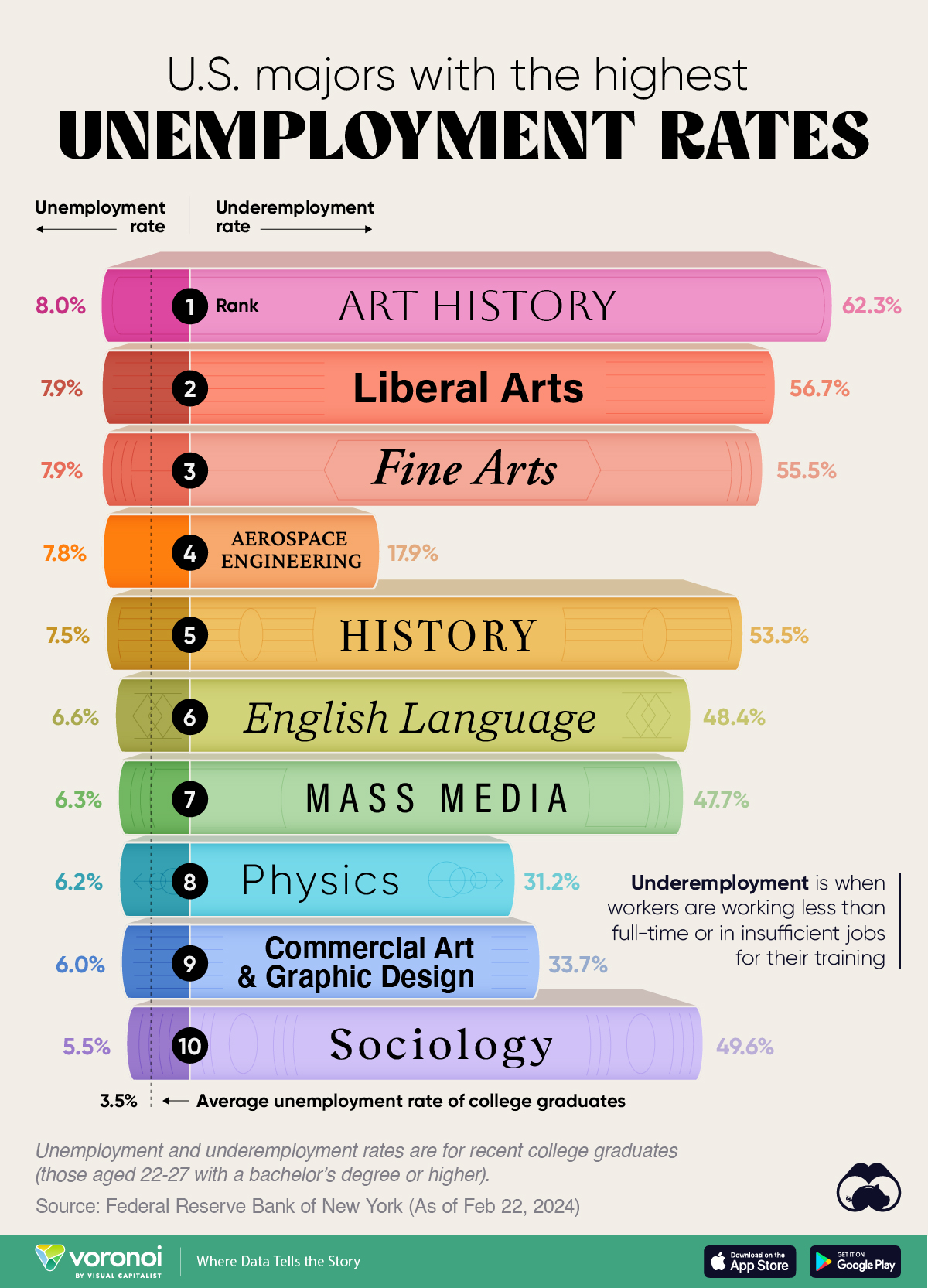What do liberal arts majors do?
Anonymous
BS CS is part of the "Math and Engineering" departments and is technical. I suppose you could get a BA in CS which is more "LA". |
Anonymous
Then the ^^PPs Bezos reference is moot. But, I don't know if they look at w2 income or "adjusted gross income" which could include non w2 income. I'm self employed and don't get a w2, but I do have an income. |
Anonymous
Sorry, not interested in people who reply to an online survey. I meant real data. Payscale data: The data used in Payscale's College Salary Report is collected through our ongoing, online compensation survey. People complete the Payscale survey to understand their price in the labor market. Users provide data about their jobs, compensation, employer, demographics and educational background. |
Anonymous
You just hustle a bit while you're working abroad--look into different options, see what life is like, pick up experience etc. Most people I know who have done this have figured out a path that works and it's not teaching ESL. Most companies want somebody with some intercultural competence, so you pick up whatever additional skill is in demand at the moment. You already have a job record for the soft skills/work ethic part to get recommendations and you have a college degree--it's really not that hard to turn that into a career. |
Anonymous
Got it...so your approach is just to bury your head in the sand because there is no other way to compile the data. It's either you use the DOE data which won't work for you because it only gets data on Pell recipients or its surveys. I guess you get to live in LaLa land (no pun intended) for eternity. |
Anonymous
DP: Or you realize that for an individual person making individual decisions about their lives a lot of this so-so data about group averages isn't the best source of information. You know your skills, your resourcefulness, your interests, your connections, your desires and you figure out a way to make a life that works for you. These kinds of averages can be slightly informative, but I would say bureau of labor statistics projections are perhaps a bit more valuable because those at least are forward looking and are made by people who are informed by and understand the strengths and limitations of a wide range of data sources. I work with data for my living and I see the ways it gets distorted and misused all the time--not for any nefarious reason, just by people who think numbers= firm reality without thinking through the complexities of what those mean. So I wouldn't discount these data, but I'm not going to tell people to make major life decisions based on them either. |
Anonymous
|
I love all the responses talking about the value of humanities. Of course people that can think, read, write and are actually educated would be valuable in organizations that interact with the actual real world.
|
Anonymous
A BA in CS is a nice option as well. Nothing wrong with a well-rounded technical education. Writing and communication is still valued. 
|
Anonymous
LOL. I can't speak to the code, but AI generated art and marketing content is all superficial and junk. |
Anonymous
Sure, but they usually tend to need graduate degrees to get a good paying job. OP is asking, "What do liberal arts majors do"? They either get lower paying jobs or go to grad school. Here's a list of % unemployed/undereployed by majors in 2023: 
https://www.visualcapitalist.com/major-worst-finding-a-job/ |
Anonymous
And yet, that's what companies are starting to use. https://www.forbes.com/sites/bernardmarr/2023/09/08/the-amazing-ways-coca-cola-uses-generative-ai-in-art-and-advertising/?sh=3b15909b2874 https://www.pecan.ai/blog/companies-using-ai-for-marketing/ |
Anonymous
Most art and marketing content used to sell products is superficial and junk...what's your point? Nobody said AI is replacing Picasso, but it can likely replace the graphic designer or some creatives that are selling toothpaste or jeans. |
Anonymous
Completely agree. |
Anonymous
Everyone who asks questions like this on this forum is. |
Anonymous
Doesn't this graphic kind of shut the door on this entire discussion? |
